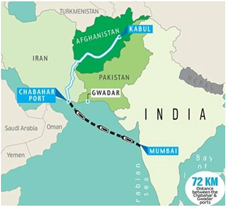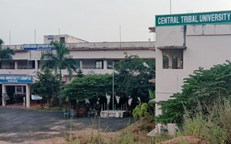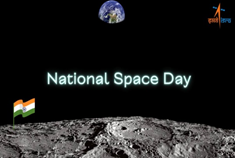

26th August 2023 (10 Topics)
International Relations (GS-II)
India and Iran drop foreign arbitration clause in Chabahar port issue

Under the new move to pursue arbitration India and Iran has drafted a foreign arbitration clause under rules framed by the UN Commission on International Trade Law which will help firm up longer-term agreement on Chabahar.
About the arbitration clause:
- Both India and Iran has agreed that disputes at Chabahar will not go for commercial arbitration in foreign courts but take investment arbitration or any other mode of dispute settlement.
- Both sides have agreed to pursue arbitration under rules framed by the UN Commission on International Trade Law (UNCITRAL) which is favoured by India over other international trade arbitration mechanisms.
- India in the recent past had described UNCITRAL as the “core legal body under the U.N. system in the field of international trade law”.
- The move is being interpreted as a step by India to stay ahead of China which has been showing interest in Iranian ports and infrastructure projects.
Why this was important for India?
- The resolution of the contentious issue will also help sanctions-hit Russia which has been eager to reach the Indian Ocean region through the 13-nation International North South Transport Corridor which passes through Chabahar.
|
UN Commission on International Trade Law (UNCITRAL):
|
Polity and Governance (GS-II)
Central Tribal University

Union Minister for Education Dharmendra Pradhan along with Andhra Pradesh Chief Minister laid the foundation for the Central Tribal University in Vizianagaram district, Andhra Pradesh.
About:
- The University will provide better educational facilities to the tribal youth, help them in getting jobs which will in turn improve their living standards and help them shine on national and international platforms.
- The Central Tribal University will offer 14 academic courses in English, Sociology, Tribal studies, Biotechnology, Chemistry, Journalism, MBA, MSW at post-graduate level, Artificial Inelligency, Botany, Geology, Tourism and Travel Management, B.Com vocational course at degree level, and short term courses in skill development, vocational and job-oriented courses.
Science and Technology (GS-III)
Defence Ministry inks deal with Hindustan Shipyard Limited (HSL), Visakhapatnam

The Defence Ministry has signed a contract with Hindustan Shipyard Limited (HSL), Visakhapatnam, to acquire five Fleet Support Ships (FSS) at an overall cost of Rs 19,000 crore.
About the deal:
- The FSS — employed for replenishing ships at sea with fuel, water, ammunition and stores — will enable the Indian naval fleet on missions to operate for prolonged periods without returning to harbour.
- The FSS of 44,000 tonnes will be the first-of-its kind to be built in India by an Indian shipyard.
- A tanker of the proposed class can support multiple fleets, from aircraft carrier to other warships, since it has the capacity to onboard 20,000 to 25,000 tonnes of fuel, and water, according to Navy officials.
- Over the years, HSL has constructed 200 vessels, refitted five submarines and repaired 2,000 vessels of various types.
Science and Technology (GS-III)
National Space Day

Recently, the Prime Minister mentioned that India will celebrate August 23 as ‘National Space Day’ from now on to mark the successful touchdown of Chandrayaan-3 mission’s lander on the lunar surface.
About:
- Further celebrated the success of India's moon mission and named the landing spot of the Vikram lander as ‘Shiv Shakti’.
- He also christened the location where Chandrayaan-2 had left its mark in 2019 as ‘Tiranga Point’.
- PM also continued by suggesting that this ‘Shivkshakti’ point will motivate future generations to utilise science to improve the well-being of humanity.


